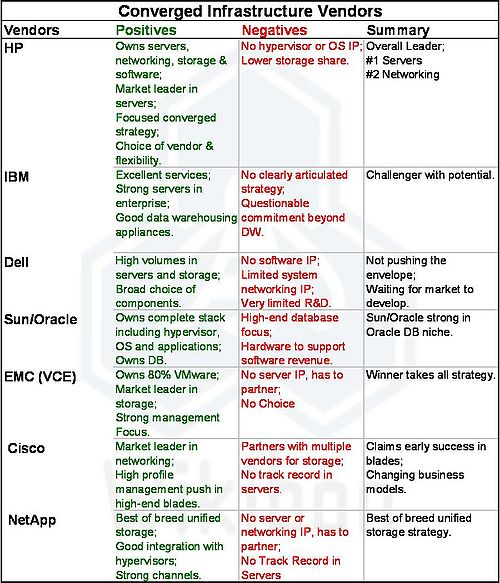#memeconnect #hp
The business case of Converged Infrastructure, a strategy of integrating server, storage and networking together with management software, and has been discussed by Wikibon1 as mainly coming from reducing the number of management points and operational staff.
Table 1 below looks at the main vendor contenders for Converged Infrastructure, their key positive and negatives, and a summary of their positioning. HP and IBM have the incumbent advantage, because of their established positions as system vendors with strong software and services support; however IBM's strategy is currently narrowly targeted at data warehousing. HP's strategy is more broad based as the company is strongest in X86 servers; both in development of solutions and in the focus of its management capabilities.
However, the choice of converged infrastructure vendor is irrelevant unless the correct management policies are in place. The two key management policies are:
- Both the order and maintenance contracts should be for a single SKU. If necessary, over-configure the converged infrastructure devices (CIDs) rather than optimize on the configuration and break the single SKU. Much higher savings will come from reducing ongoing operational costs than the traditional process of optimizing the initial configuration. When purchasing from systems integrators, the systems integrator should be fully responsible for both the deployment and maintenance of the CIDs.
- One and only one department should be fully responsible for the deployment and ongoing operational management of the CIDs. Putting CIDs into most current IT organizations will result in an illusion of progress.
Action Item: Senior management should ensure the "Rule of One" is enforced. All converged infrastructure purchases should have just One SKU for ordering and maintenance, and just One department should be fully responsible for deployment and operational management.
Footnotes: 1HP Converged Storage Sets the Stage for the Next Era of Computing




